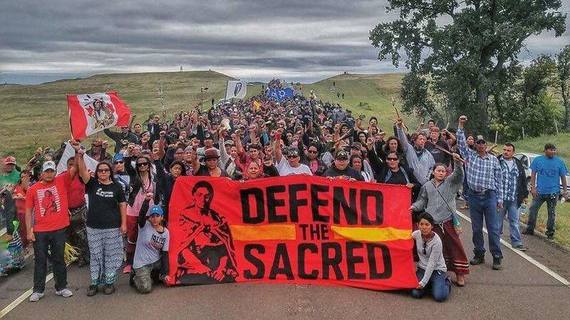A Note from Alberto Saldamando:
As I will be unable to attend the Caucus meeting Monday morning, I’m sending a brief report on the Executive Secretary’s briefing today. The important item is that although contact group meetings are open, sometimes they limit observer participation in order to preserve space for the negotiators. But when these meetings have space, even during the session, the chairs can open them up for observers.
Megumi has twitter account, @unfcccobservers and will try to inform when space allows observers that may open up during the meeting.
See you at the march tomorrow!
Alberto Saldamando, (415) 656-9198, Skype: alberto.saldamando, saldamando@sbcglobal.net
Report on Executive Secretary Briefing Saturday 12 Nov.
The Executive Secretary began her remarks by saying that in order to fulfill commitments in the PA need close contact with NGOs.
Each interest group was given an opportunity to ask questions:
Bingo began, but was also seconded by other interest groups, as to how to participate in the sessions of the COP, as experiencing many difficulties. Also inputs into substantive matters also difficult (finance, loss and damage, etc.)
Farmers only reflected disappointment in outcomes of SBSTA.
The Executive Secretary responded by saying that “rulebook” still being written. Although many important issues being discussed at COP where do have submissions from NGOS, the NGOs should foucs on National level in areas such as NDCs and finance. But do have access to meetings through system of badges, because must prioritize space for negotiators. All Plenary sessions open, and only contact groups are closed. Informals can also be open in accordance with SBI discussions. But some sessions very crowded, so need space, but will open when space is available.
Megumi has twitter account, @unfcccobservers and will try to inform when space allows observers that may open up during the meeting.
The Executive Sec. says she has observed much more willingness to have observer participation since her initial COP Cancun 2010.
RINGO Asked about individual submissions, not yet allowed.
Hassan represented IPOs and called for enhanced participation by IPOs in meetings, to allow interventions by IPOs at meetings.
TUNGOs wanted to be associated with technical groups and asked about the bike parking.
The Executive Sed. response was that bike parking was a challenge. She said that we must see COP as process that continues all year. “we are talking about a structural transformation from coal” and other fossil fuels that will take time and is a very challenging scenario. She mentioned the Indigenous knowledge platform and her office’s efforts to make it happen. She and Megumi also spoke about non-party stakeholder submission due in February to present to the parties at the next intersessional. And if there are any other ideas, please submit them to us so that the secretariat can present them to the Parties.
Saudata representing the Women and Gender interest group asked about the support for women to participate in National level discussions, that it is very difficult in some countries for women to participate. There was no response to this queston.
The meeting closed with three Indigenous organizations and COICA presenting the Executive Secretary with a gift of a drum from the Amazon that represents the voices of youth, women and who present a holistic vision of solutions to climate change, and that we need access to funding in order to implement that vision.










